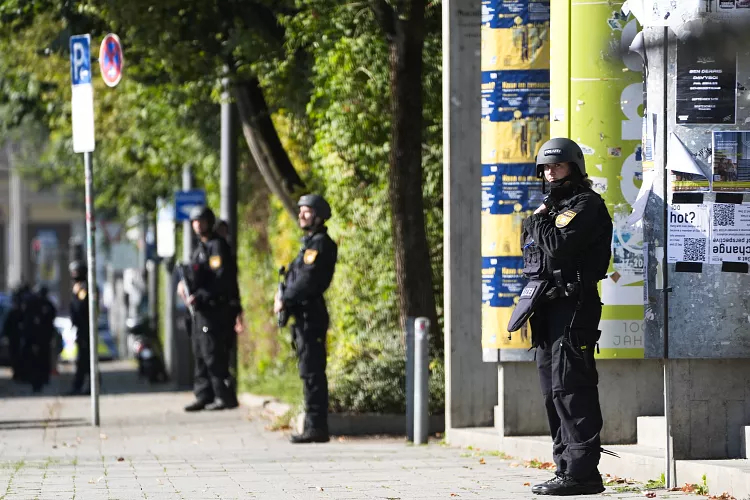
On Thursday, September 5, 2024, an 18-year-old Austrian man of Bosnian origin launched an attack on police officers near the Israeli Embassy and the Nazi Documentation Center in Munich. Armed with an antique repeating rifle, the attacker opened fire on five officers, although none were injured. The man, identified as Emra I., was shot and killed by police in the ensuing exchange of gunfire. German authorities, including the police and the public prosecutor’s office, have since labeled the incident as an attempted “terrorist attack.”
The attack raised immediate concerns about the potential affiliation of the young man with extremist groups. Some reports suggested possible ties to Hayat Tahrir al-Sham (HTS) which is an Islamic revolutionary faction operating in northern Syria, primarily concerned with the removal of the Assad regime.
Austrian police had investigated Emra I. in 2023 for suspected “religious extremism.” At the time, propaganda materials were found on his phone, and he was placed under a weapons ban until 2028. Despite this, the investigation was closed by the Salzburg Public Prosecutor’s Office in April 2023 without further action. It was reported that no direct contact with terrorist organizations was discovered during the investigation, although materials with “terrorist” themes were found on his electronic devices.
Further complicating the narrative, Austrian authorities reportedly discovered computer game footage, when the suspect was 14, on a PC featuring Islamist content, including “HTS symbols.” However, investigators clarified that these videos were from a game and “did not constitute evidence of active participation in terrorist activities.”
However, both Austrian and German agencies are continuing to search for clues but have so far failed to find evidence of contact with any terrorist network. The attack appears to be the work of a lone actor, possibly inspired by radical ideologies, but not under the direct influence or command of any group.
Amid growing speculation about the attacker’s potential ties to HTS, the group issued a statement denying any involvement in the Munich attack. HTS’s media office informed Levant 24 (L24):
“We categorically deny these allegations and confirm that the information contained in this report lacks the most basic standards of journalistic accuracy and credibility. We call on DW [Deutsche Welle] to adhere to professional journalistic procedures and verify the accuracy of the information before publishing it.”
The Munich Criminal Police, under the supervision of the Munich Public Prosecutor’s Office and the Bavarian Central Office for Combating Extremism and Terrorism (ZET), continues to investigate the case. For now, the focus is on determining whether Emra I. acted alone or if there are any overlooked connections to extremist networks.
Authorities have also suggested that the timing of the attack — close to the anniversary of the 1972 Munich Olympic attack, in which Palestinians killed 11 Israelis, may not be a coincidence, raising concerns about the symbolic nature of the incident. With conflicting reports and no confirmed ties to any organized group, the case shows the challenges faced by authorities in combating “lone-wolf” attacks inspired by radical ideologies.








